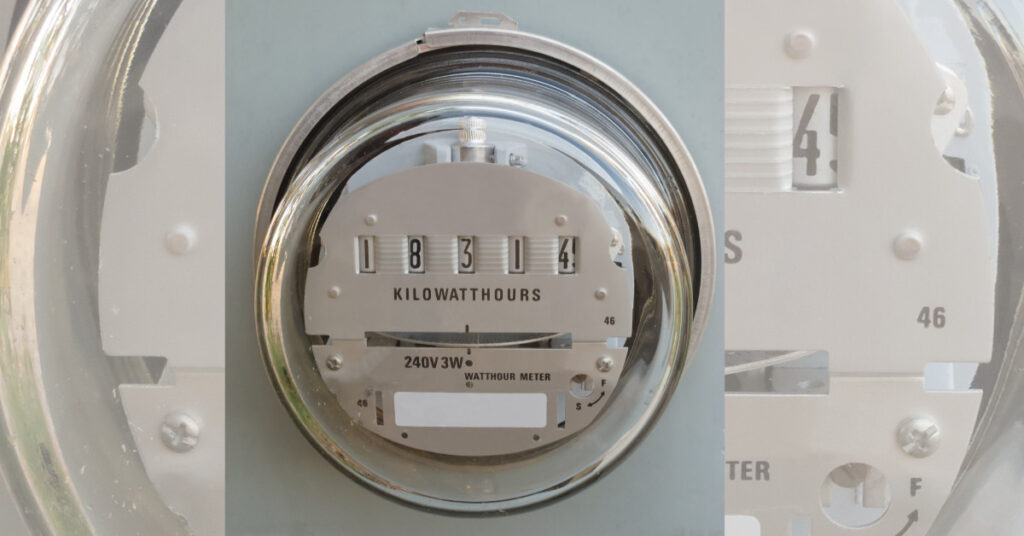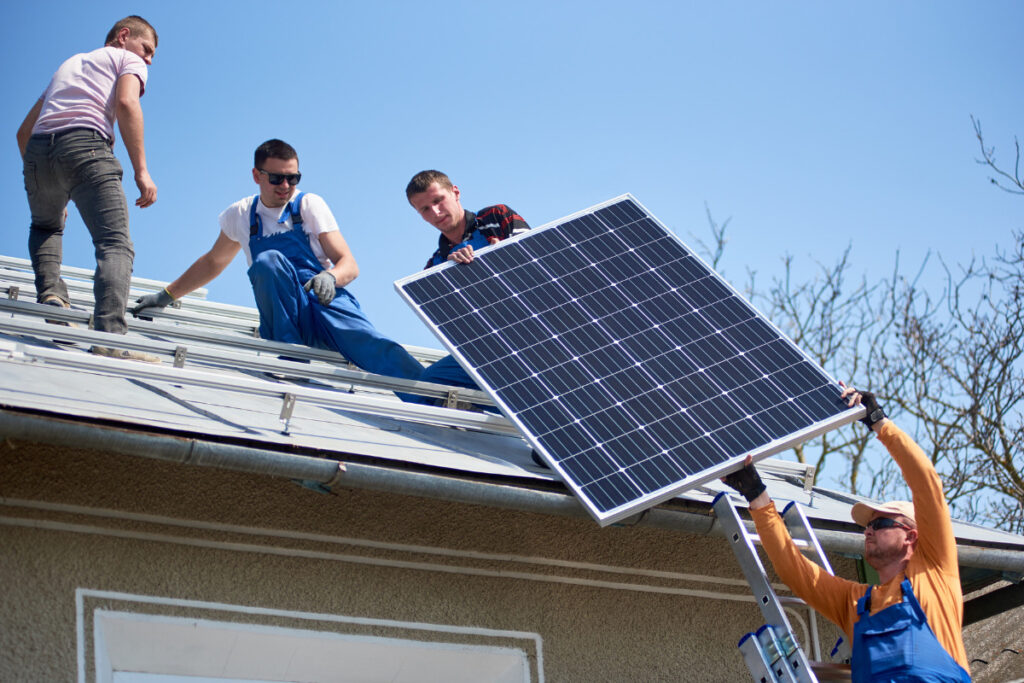Introduction
Harnessing the power of solar energy is an innovative and environmentally friendly way to save on your electricity bills, reduce carbon emissions, and increase property value.
As a residential customer considering switching to solar power with Progress Energy, you may be overwhelmed with questions about installation, costs, and benefits.
| Key Takeaways |
|---|
| Solar energy works by converting sunlight into usable electricity through photovoltaic cells, providing homeowners with cost savings on their energy bills, increased home sustainability, and reduced carbon emissions. |
| Progress Energy offers various solar programs for residential customers that allow homeowners to offset their electricity bills with renewable energy and earn credits on future bills through net metering options. |
| Homeowners must evaluate their available roof space, budget and financing options carefully before going solar. Federal tax credits and state rebates can make the switch to renewable energy more affordable; partnering with experienced installers and finance partners is key. |
| Working closely with your Progress Energy provider is crucial in going solar safely and efficiently. Proper eligibility assessment, compliance checks against local regulations & codes followed by interconnection processes are all critical steps to ensure maximum returns from your newly installed PV system while reducing your carbon footprint significantly! |
Understanding Solar Energy And Its Benefits
Solar energy works by converting sunlight into electricity through photovoltaic cells, providing homeowners with advantages such as cost savings on energy bills, increased home sustainability, and reduced carbon emissions.
How Solar Energy Works
Solar energy works by harnessing the power of sunlight and converting it into usable electricity for our homes and offices. This incredible process is possible through photovoltaic (PV) cells, commonly found in solar panels mounted on rooftops or other open spaces.
When sunlight hits these PV cells, they absorb photons from the light particles, knocking electrons loose in a process called the photovoltaic effect.
For example, imagine a sunny day when your rooftop solar panels receive ample sunlight. The PV cells within those panels absorb energy from photons, generating an electric current. This current powers your home’s appliances and devices independently of the traditional grid power sources.
This not only leads to significant savings on your energy bills but also contributes to reducing your household’s carbon footprint. By relying less on fossil fuels for electricity production, you make a positive environmental impact.

Advantages Of Solar Energy
Solar energy has many advantages that make it an excellent alternative to traditional forms of electricity. Here are some of the benefits of solar energy:
- Solar power helps reduce your carbon footprint and is an excellent way to combat climate change.
- Solar panels require little maintenance, making them a low-maintenance and cost-effective solution for generating clean energy.
- Installing solar panels can lead to lower electricity bills and long-term savings on electricity costs.
- Solar energy is a renewable resource available almost everywhere, allowing homeowners to generate sustainable and clean electricity.
- Solar panels can add value to your home, making it more attractive to potential buyers.
- The federal government provides tax credits and other incentives for installing solar panels, making it even more cost-effective in the long term.
- Progress Energy’s solar program offers net metering and buyback options, allowing homeowners to offset their energy consumption costs or sell excess power back into the grid.
By taking advantage of these benefits, homeowners can significantly reduce their carbon footprint while saving money on their electricity bills.
Progress Energy’s Solar Energy Program
Progress Energy, a subsidiary of Duke Energy, offers various solar programs for residential customers. These programs help homeowners offset their electricity bills with renewable energy and may even allow them to sell any excess power generated back to the company.
One such program is net metering, which allows homeowners who generate more solar power than they use to earn credits on their bills for future use. Progress Energy also provides interconnection agreements and guidelines for installing photovoltaic systems safely and efficiently.
Additionally, the company offers information about federal tax credits and other incentives that can make going solar more affordable for homeowners.
Assessing Your Solar Energy Needs
Determine your solar energy needs by analyzing your household’s energy consumption and available roof space while factoring in budget and financing options.
Understanding Your Energy Consumption
To successfully assess your solar energy needs, it’s important to have a solid understanding of your current energy consumption. This means reviewing your past utility bills and evaluating how much electricity you typically use every month.
Doing this lets you determine what size solar panel system would best suit your household’s needs. Additionally, identifying which appliances or devices consume the most power can help you make more informed decisions about ways to conserve energy in the future.
Determining Your Available Roof Space
To assess your solar energy needs, it’s important to determine the available roof space in your home. This will help you understand how many panels can be installed and how much electricity they can produce.
First, measure the total square footage of your roof and consider any shading from nearby trees or buildings.
Remember that different solar panel systems require varying amounts of roof space. For example, traditional photovoltaic systems typically need around 100-400 square feet per kilowatt of power generated, while newer high-efficiency panels may require less space but come at a higher cost.

Factoring In Budget And Financing Options
Before installing solar energy with your Progress Energy provider, it’s important to factor in your budget and financing options. The cost of going solar can vary depending on factors such as the size of your home, available roof space, and desired level of energy production.
However, several financial incentives are available to homeowners who choose to go green with Progress Energy. For example, federal tax credits can offset up to 30% of the system cost, while state rebates may also be applicable.
Additionally, those who generate excess electricity through their photovoltaic systems may be able to sell that power back to Progress Energy at a competitive market rate through net metering programs.
Working With Your Progress Energy Provider
Working with your Progress Energy provider is crucial to ensure eligibility and proper assessment for solar energy installation. It allows you to understand interconnection processes, net metering programs, and the solar buyback rate.
Eligibility And Assessment
To start, eligibility and assessment are crucial in installing solar energy with Progress Energy. Before anything else, homeowners must determine if they meet the requirements for solar energy installation.
This usually involves a comprehensive evaluation of their home’s solar power generation potential. Factors taken into account include available roof space, sunlight exposure, and current electricity consumption.
It is important to note that each state may have different policies regarding renewable energy installation, incentives, and the availability of online tools and resources.
However, there are tools and resources available online that can help homeowners navigate this process.
For example, SETO (The Solar Energy Technologies Office) offers information about residential photovoltaic systems’ costs and maps displaying average annual sunshine levels across the United States.
Interconnection Processes And Requirements
To connect your solar energy system to the Progress Energy grid, you must follow certain interconnection processes and meet specific requirements. Here are the steps involved:
- Fill out an Interconnection Application: Submit a completed application to Progress Energy, which outlines the details of your proposed installation.
- Review by Progress Energy: The company will review your application and assess if it meets interconnection standards.
- Sign an Interconnection Agreement: Once your application is approved, you’ll enter into an agreement with Progress Energy outlining the interconnection terms.
- Install Your Solar Energy System: Install your solar panels and equipment following all necessary codes and safety regulations.
- Inspection Process: Have a qualified electrician inspect your system before notifying Progress Energy for their inspection process.
- Receive Permission to Operate (PTO): Upon passing the final inspection from both parties, PTO will be granted by progress energy and permission for your solar power plant.
By following these steps, you can ensure a seamless interconnection process with your Progress Energy provider and start generating renewable energy for your home or business while simultaneously saving money on energy bills!

Net Metering And Other Available Programs
One of the key benefits of installing solar energy with Progress Energy is access to net metering and other available programs. Net metering allows you to send electricity back to the grid when your solar panels generate more power than your home needs and receive credit from Progress Energy on future bills.
In addition to net metering, Progress Energy offers a range of other programs, including solar rebates and incentives for residential customers. These incentives can help lower the upfront cost of purchasing and installing a photovoltaic system, making it easier for homeowners to switch to renewable energy.
Understanding The Solar Buyback Rate
The solar buyback rate is essential when installing solar energy with Progress Energy. This refers to the rate at which Progress Energy buys back excess power generated by the solar panels you don’t use and feed back into the grid.
You can earn credits for this excess power, which will be credited on your electricity bill.
It’s worth noting that different states and utility companies have varying policies regarding net metering and buyback rates. In South Carolina, homeowners have the opportunity to sell excess electricity back to their utility company at a retail rate. This applies to those who produce more power than they consume through their photovoltaic system. These rules were adopted in 2019 under the Net Metering program.
The Installation Process
After choosing a qualified solar installer, the installation process involves several steps. These include site assessment, design and engineering, permitting, equipment installation, and connection to the grid.
Choosing A Qualified Solar Installer
Choosing the right solar installer is crucial to ensure your system works efficiently and reliably for years. Look for a certified installer with experience installing solar panels on homes similar to yours.
Check if they have a valid license, insurance, and warranties. A good solar installer should also be able to provide references and answer all your questions about the installation process, maintenance, monitoring, and any permits required.
According to the South Carolina Energy Office Consumer Guide to Solar Electricity for Your Home, there are several resources you can use to find qualified solar installers in your area.
One is Progress Energy’s website, where you can search for certified contractors participating in their Solar Energy Program. You can also check local directories such as Angie’s List or Yelp or ask friends and neighbors who have installed solar panels about their experience with their chosen contractor.
Steps In The Installation Process
Installation of a solar energy system with your Progress Energy provider can be a worthwhile investment in the long run. Here are the steps involved in the installation process:
- Site Assessment: A qualified solar installer will visit your property to assess your roof’s size, condition, angle, and energy consumption needs.
- Design Proposal: The installer will design a custom proposal that outlines the type, number, and placement of solar panels required for optimal energy generation.
- Permitting: The installer will obtain necessary permits from the local government or homeowners association if needed.
- Installation and Interconnection Approval: Once permits are obtained, the installer commences the installation of solar panels and other components. These components are installed either on your roof or in a ground-mounted setup.
- Inspection and Connection to Grid: The system will undergo an inspection for compliance with electrical codes. This inspection is conducted before the system is connected to the grid after installation.
- Monitoring and Maintenance: The installer will provide monitoring tools for regular performance checks. They will also offer maintenance support to ensure the system’s proper functioning over time.
Going solar requires careful planning and consideration of many factors. These include budget selection and site assessment. Additionally, there is the interconnection approval process from the Power Company and environmental concerns such as carbon footprint reduction.
When done right, going solar can lead to significant savings on energy bills. Moreover, it contributes positively towards sustainable living practices by producing clean green power from a renewable source—the sun!

Maintenance And Monitoring Of Your Solar System
Maintaining and monitoring your solar system is crucial to ensure that it functions efficiently, maximizes energy production, and lasts for a long time. Regular cleaning of solar panels helps them absorb the maximum amount of sunlight.
To remove dirt, dust, debris, and bird droppings from your panels, you have two options. You can use a non-abrasive cleaner or simply water along with a soft cloth or brush. These cleaning methods will help maintain the efficiency of your solar panels.
Monitoring your solar power generation is essential for understanding your system’s performance. By tracking the electricity produced daily or monthly, you can compare it with your energy consumption. This information allows you to assess the effectiveness of your solar system and make informed decisions about your energy usage.
This can help you adjust your usage patterns and identify problems early on. Many solar providers offer online monitoring tools or mobile apps that allow homeowners to track their energy production in real time and receive alerts if anything goes wrong.
Benefits Of Installing Solar Energy With Progress Energy
Installing solar energy with Progress Energy can result in lower energy bills, reduced carbon footprint, increased property value, and access to federal tax credits and other incentives.
Lower Energy Bills And Long-Term Savings
Installing solar energy with your Progress Energy provider can help you save money on electricity bills in the long run. While installation costs may seem steep, they are offset by lower monthly utility bills and the potential to earn money through net metering programs.
Additionally, as utility rates continue to rise over time, utilizing renewable energy resources such as solar power can lock in low rates for years federal.
Plus, federal tax credits and other incentives further reduce installation costs and encourage homeowners to switch to clean energy sources.
Reduced Carbon Footprint And Environmental Protection
By installing solar panels with your Progress Energy provider, you can significantly reduce your carbon footprint and protect the environment.
Traditional energy sources like coal and natural gas release harmful greenhouse gases contributing to climate change and air pollution.
In fact, according to the South Carolina Energy Office, a typical residential solar panel system can offset around 100 tons of CO2 over its lifetime – equivalent to planting about 3 football fields worth of trees! By going solar with Progress Energy, you can do your part in protecting the environment while also saving money on your energy bills.
Increased Property Value And Home Sustainability
Installing solar energy with your Progress Energy provider can lower your energy bills and increase your property’s value. Homebuyers are increasingly interested in sustainable and environmentally conscious homes, making solar panels an attractive addition to any home.
Additionally, installing solar energy can make your home more sustainable by reducing its carbon footprint and reliance on non-renewable resources. You become part of the fight against climate change by using clean power and contributing towards more excellent environmental protection and conservation efforts.
Federal Tax Credits And Other Incentives
Installing a solar energy system with your Progress Energy provider offers significant advantages, including the availability of federal tax credits. These credits can significantly reduce the upfront costs and make solar more affordable for homeowners. Additionally, other incentives can further enhance the financial benefits of going solar. The table below highlights these incentives and their benefits, making it easier to decide to install solar panels.
| Incentive | Description | Benefit |
|---|---|---|
| Federal Solar Investment Tax Credit (ITC) | A federal tax credit available for residential and commercial solar installations. | Homeowners and businesses can receive a tax credit equivalent to 30% of the total solar energy installation cost through 2032, which reduces to 26% in 2033 and expires for residential installations 2034. |
| State and Local Incentives | Various state and local incentives are available to promote solar energy adoption. | These incentives can include property tax exemptions, sales tax exemptions, and additional tax credits, significantly reducing the overall cost of solar energy systems. |
| Net Metering | A billing arrangement between the solar energy system owner and Progress Energy, allowing the excess energy generated to be credited back to the system owner. | Net metering helps lower your energy bills by crediting you for the extra solar energy produced by your system and sent back to the grid. |
| Solar Renewable Energy Certificates (SRECs) are | Tradable certificates that represent the environmental benefits of having one megawatt-hour (MWh) of solar electricity. | SRECs can be sold to utility companies, generating additional income for solar system owners and making the installation more cost-effective. |
These federal tax credits and other incentives make it more affordable for homeowners and businesses to adopt solar energy systems, leading to significant long-term savings and contributing positively to the environment.
Conclusion
We hope this guide has helped provide you with the information and resources you need. It will assist you in understanding solar energy benefits and assessing your needs. Also, help you work with your energy provider, install solar panels, and reap the benefits of using renewable energy.
Switching to solar power offers multiple benefits. It helps reduce your carbon footprint, lowers energy bills in the long term, and increases your property value.
Go solar with Dronequote
Ready to make a positive impact on the environment and save on energy costs? Look no further than DroneQuote, your trusted partner in going solar. Our team of skilled professionals is here to guide you through the installation process and ensure a smooth transition to solar energy.
With DroneQuote, you can expect top-notch solar and roofing services tailored to your specific needs. Our experts will provide high-quality installations, delivering remarkable results that align with your goals.
Don’t miss out on this opportunity to schedule a consultation with us today. Discover the remarkable benefits of harnessing the boundless power of solar energy. With our dedicated support, you’ll experience substantial savings, a reduced carbon footprint, and the advantages of clean, renewable energy.
Let’s join forces to create a brighter and greener future together. Contact DroneQuote now and take the first step towards a sustainable lifestyle.

FAQs
- Is switching to solar energy with my current Progress Energy Provider challenging?
No, the process is relatively simple. Contact your provider and discuss your intentions to switch or install a solar energy system to get started. From there, our experts will guide you through the necessary steps. They will also help determine which panels work best for your needs.
- What are some benefits of installing a solar energy system?
There are many benefits to switching over to solar power. These include lower electricity bills, reduced carbon footprint, and greater independence from traditional power grids during outages or emergencies.
- How long does a solar panel installation project take to complete?
The timeline can vary depending on several factors, such as the availability of materials & weather conditions. But generally, most installations take 6-8 weeks before fully operational.
- Can I sell excess electricity from my solar panel systems back into the grid?
Yes! Many electric providers offer “net metering” programs. These programs allow homeowners with installed panels to access reduced rates on their bills. It happens when they produce more energy than they need for their own use. The surplus production is added back into the central grid supply at regular wholesale bulk pricing levels available locally.

[…] off-grid solar system, you can generate your own clean and renewable energy, which means reduced carbon emissions and a smaller ecological footprint. Moreover, investing in solar panels offers substantial returns […]